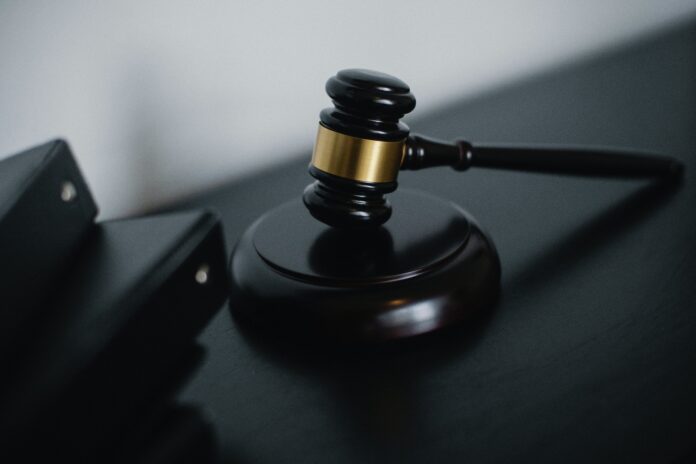
By Stacy M. Brown, NNPA Newswire Senior National Correspondent
A recent investigation by ProPublica has raised concerns about Supreme Court Justice Samuel Alito’s potential violation of ethics laws.
The investigation uncovered a series of luxury trips and a questionable relationship with wealthy donors, shedding new light on the intimate access influential political contributors have to the country’s most powerful judges.
It is the second time this year that ProPublica has outed a Supreme Court Justice for allegedly accepting and failing to report extravagant gifts.
In April, ProPublica revealed that Justice Clarence Thomas had received extensive luxury travel over several decades from prominent Republican donor Harlan Crow, a Dallas real estate magnate.
Thomas defended himself by stating that unnamed colleagues had advised him not to report such gifts to the public.
However, further examination revealed additional questionable transactions between Thomas and Crow.
ProPublica discovered that Crow had provided financial support in an undisclosed real estate deal and paid private school tuition for Thomas’ grandnephew, whom the Justice was raising as his son.
Neither of these transactions was reported on Thomas’ disclosure forms.
The Alito probe focused on a fishing trip in July 2008, where the justice was photographed alongside Paul Singer, a hedge fund billionaire known for repeatedly seeking favorable rulings from the Supreme Court in high-stakes business disputes.
The trip occurred at a lavish fishing lodge in Alaska, with a price tag exceeding $1,000 daily.
Alito reportedly caught a king salmon nearly the size of his leg during the excursion.
However, concerns lie around Singer’s alleged involvement, including flying Alito to Alaska on a private jet, potentially costing over $100,000 one way.
According to ethics law experts cited by ProPublica, Alito’s failure to disclose the private jet flight and the fishing trip on his annual financial disclosures appears to violate federal laws that require justices to disclose most gifts.
The revelations prompted questions about the justices’ impartiality when ruling on cases involving individuals who have provided them with costly gifts.
Legal experts and professors specializing in recusal expressed their concerns about Alito’s actions.
Charles Geyh, an esteemed law professor at Indiana University, told ProPublica, “If you were good friends, what were you doing ruling on his case? And if you weren’t good friends, what were you doing accepting this?”
The report revealed that Singer’s hedge fund appeared before the Supreme Court at least ten times in the years following the fishing trip, often garnering attention from the legal press and mainstream media.
Of particular note was a case in 2014, where the court ruled in Singer’s favor in a long-standing dispute between his hedge fund and the nation of Argentina, resulting in a substantial payout of $2.4 billion.
Alito’s alleged violation of disclosure requirements highlights the self-policing nature of justices regarding ethical issues, with limited restrictions on the gifts they can accept.
This starkly contrasts with the strict guidelines imposed on most federal workers, who are generally prohibited from accepting even modest gifts.
The investigation also brought to light another prominent businessman who provided luxurious vacations to two members of the Supreme Court.
The same businessman had previously flown the late Justice Antonin Scalia on a private jet to Alaska and covered the expenses of his stay.
Experts said these instances of influential individuals offering extravagant trips to the justices demonstrate the potential influence such gestures may have on the judicial decision-making process.
Leonard Leo, the influential leader of the conservative Federalist Society, allegedly played a crucial role in organizing the Alaska fishing vacation, inviting Singer to join.
Leo’s involvement reportedly raised concerns about potential conflicts of interest, as Singer and the lodge owner were significant donors to Leo’s political groups.
ProPublica’s said its investigation drew from trip planning emails, Alaska fishing licenses, and interviews with numerous individuals, including private jet pilots, fishing guides, former Singer and lodge owner employees, and other guests on the trips.
When approached with detailed questions, Alito declined to comment.
However, he later responded to ProPublica’s queries in an op-ed published in The Wall Street Journal.
Alito claimed that he was unaware of Singer’s connection to the cases when they appeared before the court and that he had minimal personal interaction with the billionaire.
Alito defended his failure to report the trip, stating that justices commonly interpreted the disclosure requirements to exclude “accommodations and transportation for social events.”
Singer’s spokesperson denied organizing the fishing trip and emphasized that neither Singer nor his companies had any pending matters before the Supreme Court.
Leo declined to comment directly on organizing the trip but asserted that he would never dictate justices’ actions.
ProPublica said the investigation into Alito’s and Scalia’s luxury travel is part of a growing trend that has prompted lawmakers to demand ethics reforms.
Proposed bills aim to tighten rules regarding recusals, establish a binding code of conduct for the Supreme Court, and create an ethics body responsible for investigating complaints.
Currently, the court needs both a code and an ethics office.
The Supreme Court’s response to these calls for reform has been lukewarm, with Chief Justice John Roberts offering no direct comment on the recent revelations. Roberts has even suggested that Congress may not possess the authority to regulate the court.


